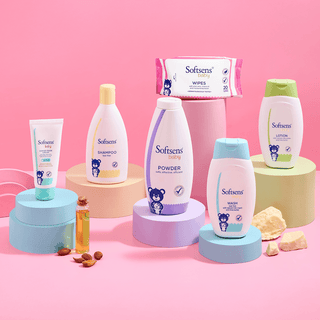
A guide to most things you need to know before introducing your baby to solid foods.
Here’s some great news for all you new Mamas and Dadas. You don’t have to be a great cook to be able to whip up delicious baby food for your little one! All you need is a few simple ingredients, a good blender and some interesting ideas! Homemade baby food is fun, more nutritious than store-bought baby food and delicious (yup, we’re all guilty of eating that leftover baby food). But before you start introducing your baby to new foods, here’s a few things you should know.
1. You need to make sure your baby is ready for solid foods. Most babies can start eating solids at the 6-month mark, but it varies, with some even starting earlier. If your baby is showing an interest in trying new foods and they can sit up and hold their head up on their own, they may be ready. Check with your pediatrician before starting them off on solids.
2. Your babies can’t chew yet, so all food needs to be blended well into a puree to make sure your baby can consume it easily.
3. Start by giving them one ingredient at a time so you can look out for signs of any specific food allergies. Some common foods that can cause allergies are eggs, tree nuts, peanuts, cow milk, fish, soy and wheat. Do not give honey to your child until they are at least 1 year old as it contains a hormone that can be dangerous for little ones with a developing digestive system.
4. Make sure you buy fresh, good quality ingredients (preferably organic) as your baby’s immune system is still developing. Wash and cook them well.
5. Certain foods can lead to a lot of gas, so you could wait a while before starting your baby on these. Some of these include cauliflower, cabbage, broccoli, beans, citrus fruits, Brussel sprouts and oatmeal. You could check with your pediatrician for a list of gas-inducing foods.
6. Start with very small portions. If your baby is around 4-6 months, you can feed them 2-3 tablespoons of food twice a day. Babies that are around 7-12 months can be fed small baby fist-size portions thrice a day, i.e. breakfast, lunch and dinner. You can also give them baby snacks up to twice a day if they show an interest in eating. It will take time for them to get used to this new routine so don’t be disappointed if they don’t take to it quickly.
7. Once they start eating solids, breastmilk/formula becomes a supplement to their diet. Until the 9-month mark, you can give them a recommended amount of between 20-28 ounces of breastmilk or formula per day. Between the age of 9-12 months, you can give them 16-24 ounces of breastmilk or formula per day.
8. Make mealtime an activity by itself. Babies can be fussy eaters and it’s also hard to keep their attention for a while. To make sure you’re not chasing a tiny toddler with a spoon in your hand until either you or the baby gets tired, make them sit upright in a high chair designed for mealtime. Turn down any loud noises and make this a quiet soothing activity for your little one. Don’t be disheartened if your baby refuses to eat certain foods at first. Some babies even try food up to 10 times before finally accepting it. Be patient, be creative and keep trying new and interesting things.
9. Ensure that you’re feeding your little one food that is appropriate for their age. At 6 months, you can start them off with iron-fortified cereal,certain pureed fruits, pureed vegetables, pureed legumes, etc. After the 8-month mark, there are some more added foods they can try. Get a list of baby-friendly foods and foods-to-avoid from your pediatrician for added precaution.
10. Baby food doesn’t have to be totally bland! After the 9-month mark, you can start adding certain herbs and spices to your baby’s food to add flavor. Speak to your pediatrician about which herbs and spices are recommended and which ones to avoid. Of course, use only a tiny sprinkling at first and give your baby time to get used to these new flavors.
11. Make sure to balance nutrients well when you make the baby’s weekly menu. Don’t forget to include foods that meet their iron requirements and include healthy sources of fat too.
12. Until they are 1 year old, babies do not need much salt (0.4 grams of sodium, to be precise), so it is not advisable to add extra salt to your baby’s food. Another thing to stay clear of is added sugars. Instead, you can introduce your baby to naturally sweet foods in the form of fruits.
13. At 1 year of age, your baby can start eating most adult foods. Chop up food well to make sure it is easy to eat, and feed them in appropriate portions.
Mostly, just go at your own pace, watch your baby closely for signs and remember that no two babies are the same. Enjoy this journey of delicious discovery together!



















